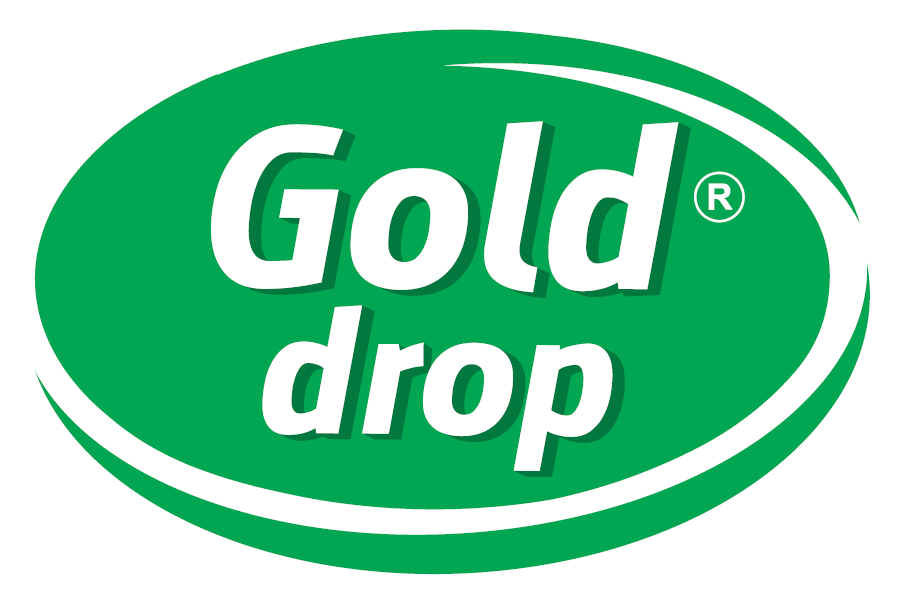Exactly. It all started out in 1991 from the purchasing of a warehouse belonging to a failing municipal company; it was converted into a production plant. The first products made there were, successively, 'Lemon Fresh' dishwashing liquid, 'Window' cleaning liquid for windows and glass, and 'Floor' all-purpose cleaner. In the times when the Polish shelf of cleaning agents was very modest, Gold Drop was creating products supposed to help maintain cleanliness in every home after adding just a symbolic “drop” to water. After over 25 years in operation, Gold Drop has changed beyond recognition. Today, it owns a factory with an area of 11 000 square metres, and employment in the company has increased from the original nine to almost 200 people. The company of Limanowa currently manufactures nearly 60 products in more than 700 variants. They differ in composition, colour, scent, capacity or packaging type. Despite such a wide portfolio, the company constantly develops new products and searches for innovative solutions.
What percentage of production does enter foreign markets and what products are available to foreign consumers?
Almost over 33% of production reaches foreign markets. These are a wide array of products manufactured by GOLD DROP under private labels and under producer brands, including: an ecological series, all-purpose cleaners, professional preparations for various surfaces, window cleaners, mirror cleaners, synthetic starch, dishwashing liquids and gels, abrasive cleaning milks, pipe unblocking gels, descalers, toilet gels and disinfectants, as well as washing liquids and gels, concentrate and liquid fabric softeners, floor and carpet cleaners, furniture preparations, car maintenance products and liquid soaps.
On the other hand, approx. 20% of private label products reaches foreign shops in relation to the total exports.
Private labels and “brand” products – how are they perceived by consumers in Poland and in European markets?
The market of private labels in Poland is still relatively young. Nevertheless, it is developing very dynamically. In just over a dozen years, private label products have acquired shares in the FMCG market, estimated to approx. 24% of the sales. It is still less than in other European countries where the estimates vary from 45 to 50% of shares. Most private label products have undergone a metamorphosis changing the way they are perceived.
From products regarded as cheap and of poor quality, they have became synonymous with quite good quality for a reasonable price. Of course, the quality of a private label and its perception by customers mostly depends on the label's owner. Some manufacturers put special emphasis on the development of private labels and do not confine themselves to the so-called copying of market leaders, instead they create alternatives to brand products themselves. Therefore, customers in Poland, just like in other countries, trust private label products increasingly more and willingly reach for them.
What are the prospects of development for Polish small and medium companies, connected with the production of private labels?
As I have already said, the private label market is developing very dynamically, so increasingly more manufacturers offer their services in this regard. There is no less competition in the market of private label producers than in the area of producer brands. To gain a customer, a given producer must show its advantage over the others with regard to the quality of the offer, service or, obviously, price. Nevertheless, the large presence of small and medium companies manufacturing for private labels evidences the fact that Polish companies fare very well in this market. They are aware that the flexibility and relatively low operating costs of small and medium enterprises may be a significant advantage in the struggle for production of private labels. Looking at the shares of private labels in the markets of Western European countries, one can assume further dynamic growth of this market in Poland as well.
Do you intend to enter new markets (also with private labels)? Please tell us about the development of the export branch at the company.
For many years, the export department of Gold Drop has been one of the key branches in the functioning of the company. Currently, we cooperate with customers from 24 countries, in Europe, Asia and Africa. We sell products bearing the Gold Drop logo, as well as provide comprehensive customer service in the area of private labels. In order to develop itself, a company must constantly pursue new customers and outlets. Therefore, Gold Drop, in its activity, is not satisfied with what it already has but tries to reach potential customers with its offer. Soon we will put major emphasis on developing cooperation with European markets.
Thank you for the conversation.
Monika Kociubińska












